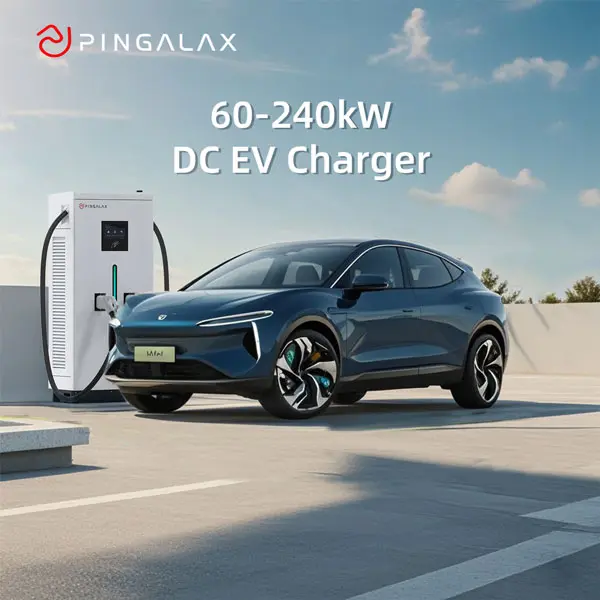Industry newsMay 19,2025By:
**How EV Car Charging Stations Are Shaping the Automotive Industry**
The rise of electric vehicles (EVs) is transforming the automotive industry, and a critical driver of this shift is the evolution of charging infrastructure. EV charging stations are no longer just a supporting feature—they are reshaping vehicle design, consumer behavior, and even automakers' business strategies. As charging networks expand, their impact on the industry grows, influencing everything from manufacturing to urban planning.
**Accelerating the Transition to EVs**
A robust and accessible charging network is essential to alleviate "range anxiety" and encourage more consumers to switch from gasoline-powered cars to EVs. Automakers are increasingly investing in charging solutions, either through partnerships (like Ford and Tesla’s Supercharger collaboration) or proprietary networks (such as Volkswagen’s Electrify America). These efforts not only boost consumer confidence but also push competitors to prioritize EV development, accelerating the industry’s shift toward electrification.
**Redefining Vehicle Design and Technology**
Charging speed and compatibility are now key considerations in EV design. Automakers are adopting faster-charging batteries and standardized connectors (like the North American Charging Standard, or NACS) to ensure seamless integration with charging networks. Additionally, bidirectional charging—which allows EVs to power homes or feed energy back to the grid—is emerging as a selling point, turning cars into mobile energy storage units. This innovation could redefine the role of vehicles in energy ecosystems.
**Creating New Business Models**
Charging stations are opening new revenue streams for automakers and energy companies. Subscription-based charging plans, ad-supported free charging, and loyalty programs are becoming common. Some companies are even exploring battery-swapping stations as an alternative to traditional charging. Meanwhile, gas stations and retail chains are retrofitting their facilities with chargers, transforming into "energy hubs" that offer convenience beyond refueling.
**Influencing Urban and Infrastructure Development**
The demand for charging stations is reshaping city planning and real estate. Governments are mandating EV-ready buildings, while businesses install chargers to attract customers. Highway corridors are being dotted with fast-charging hubs, mirroring the gas station model but with added amenities like lounges and cafés. This shift is also pushing upgrades to electrical grids to handle higher loads, fostering collaboration between automakers, utilities, and policymakers.
**Conclusion**
EV charging stations are more than just power sources—they are catalysts for industry-wide change. By addressing consumer concerns, enabling new technologies, and creating innovative business opportunities, charging infrastructure is playing a pivotal role in the automotive revolution. As charging becomes faster, smarter, and more widespread, it will continue to shape the future of transportation, energy, and urban living. The automakers and stakeholders that adapt to this charging-driven landscape will lead the next era of mobility.

Check out Pingalax!
© 2025 All Rights Reserved
Power By Bontop